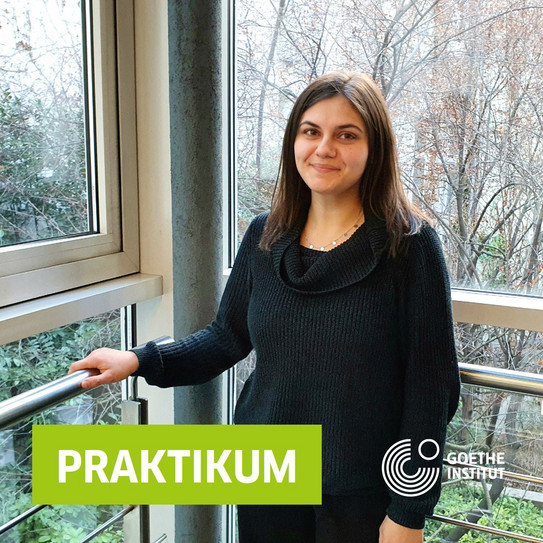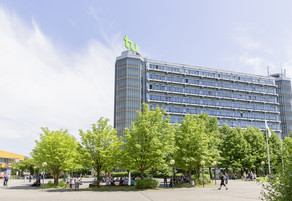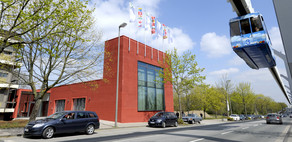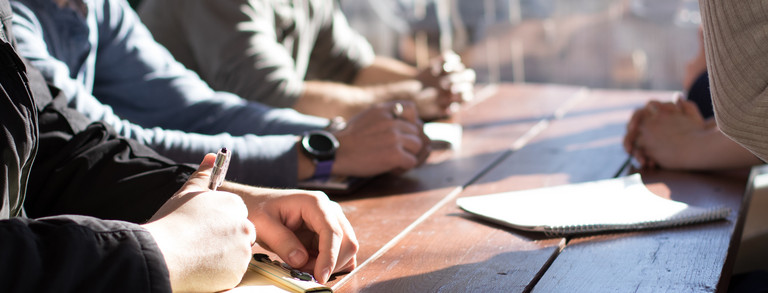Internships for international students
With an internship, you can gain initial professional experience during your studies and get to know potential fields of activity and employers. The acquired practical experience and the learned skills can facilitate professional orientation and often also the start of a career.
Voluntary Internships:
In the case of voluntary internships, the objectives, content and duration are determined in consultation with the respective provider of the internship. There are no special requirements by the university.
Legal requirements:
The same legal regulations apply to voluntary internships as to student part-time jobs. Those who are not from the European Union (EU) or the European Economic Area (EEA) may work a total of 140 full days or 280 half days per year (since 01 March 2024). This is noted in the (supplementary sheet to your) residence title. The internship counts as regular work, even if it is unpaid. If the quantity of these mentioned days is exceeded, permission from the Foreigners' Registration Office and the Employment Agency is required for the internship. Compulsory internships are exempt from this rule.
Please inform yourself at an early stage at the local Foreigners' Registration Office and the Employment Agency. You can find more information on the legal regulations for student part-time jobs here.
Compulsory internships:
In many degree programs, internships are mandatory during the course of study. Whether there is a compulsory internship in a degree program, and which criteria must be met for recognition, can be found in the corresponding examination/study regulations or the module handbook of the according degree program.
Compulsory internships (both paid and unpaid) that are a required part of the degree program do not require approval from the Foreigners' Registration Office or the Employment Agency. The same applies to the preparation of final theses in the company. The approval-free 140 full or 280 half working days are not affected by this and can be made use of in addition.
Note: The statutory minimum wage also applies to all students. It does not apply to compulsory internships and internships lasting less than three months.
Note: Study-related internships of international students may last up to 12 months in Germany. These 12 months do not have to be completed in one go, but can be split and distributed over the entire duration of the studies.

Note: If you are a student with citizenship in the EU/EEA countries/Switzerland and have a part-time student job or a paid internship in Germany, you must take out health insurance in Germany. Your European Health Insurance Card (EHIC) is then no longer valid. There are rare exceptions to this – more information is available from the health insurance company.
Finding an internship
- stellenwerk Dortmund: The university job portal
- AStA TU Dortmund: Job and housing exchange (DE)
- International Office: Internship abroad
- Dortmund at work: Internship information and positions (DE)
- UNICUM Karrierezentrum: Internship Exchange (DE)
- Federal Employment Agency: Internship Search (DE)
- Berufsstart: Job exchange for graduates and interns (DE)
- Jobware: Internship Search (DE)
- indeed: Internship Search (DE)
- Stepstone: Internship Search (DE)
- Jobs.de: Internship Search (DE)
- absolventa: Internship Search (DE)
- jooble: Internship Search (DE)
- Praktikum.de (DE)
- MeinPraktikum.de (DE)
- praktikum.info (DE)
- praktika.de (DE)
- Praktikum-Service.de (DE)
- ALG: Internship exchange for the arts and humanities (DE)
- academics: Internship in science & research (DE)
- ResearchGate: Internship search
- International Office: International Career Fair
Please note that this list of contact points is only an exemplary selection and does not claim to be complete.
An internship on site during the pandemic
Eleonora S. was a student at the Ruhr University Bochum and at the same time a research assistant at TU Dortmund University. In this article, she reports on her personal experience of completing a five-month internship on site during the Covid pandemic.
Where did you do your internship?
In a globally represented cultural institute, the Goethe-Institut, in Budapest, Hungary.

Why did you choose exactly this internship?
I voluntarily chose to do my compulsory internship abroad, extending the duration of the internship, so that I could develop professionally in the best possible way during this time. For five months I worked there, 40 hours a week. This work rhythm helped me to imagine how the working life could look like in the near future.
How did you find the internship? Did you prepare yourself in some special way for the application?
I registered with stellenwerk Dortmund for an application document check. There I not only had the chance to have my application documents reviewed, but I also received a lot of practical tips and information from the responsible contact person. The input from stellenwerk Dortmund made my decision easier and more goal-oriented, and I applied to the cultural institute well prepared.
How did the pandemic affect your internship? Were there any restrictions?
My internship started last fall. Initially, I worked on site at the institute, but as the Covid situation worsened, I increasingly worked from home. However, with the help of various weekly online meetings, it was possible to maintain good contact and a pleasant working atmosphere.
What do you take away from your internship?
I learned how important it is to be able to exchange ideas with our fellow human beings and interact with each other. After about a year and a half of working from home, I noticed not only in myself but also in my colleagues at the institute that meetings in presence were more valued. For me, the initial work on site in the office was a great motivation and refreshment.
But the most important insight is that nowadays it is possible to work well together, get to know each other and even make friends via digital channels and online meetings. Digital work also makes it possible - professionally and privately - to grow, develop and learn from colleagues.
Would you recommend an internship in times of Covid?
Definitely yes! Since Covid is present worldwide, we have to learn how to deal with this situation. Unfortunately, the risk of disease is everywhere and if you follow the safety measures reasonably, you can also work abroad with a good conscience.
In my opinion, it is extremely important to be flexible in times of Covid, as the pandemic situation can always change. Depending on the field of work, you should also be prepared to work from home. If you only wish or can imagine an internship on site, then I recommend to do an internship in summer.
Thank you very much, Eleonora!

![Eat & Read [Translate to English:]](/storages/international/r/Bilder/Veranstaltungen/Eat___Read/waffel_plain_buecherturm.jpg)










